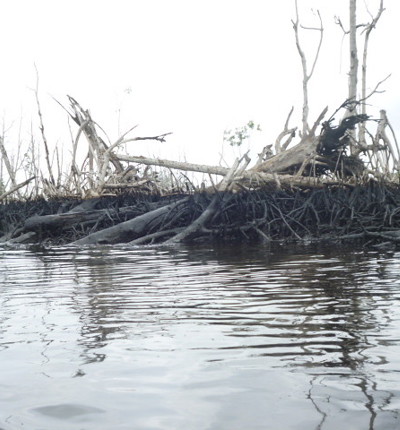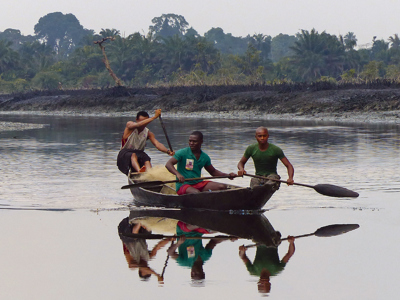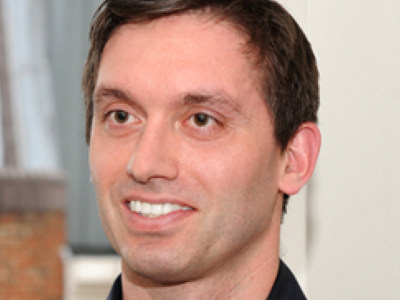
UN human rights experts say sell-off of Nigerian assets by Shell and other oil giants may have breached human rights laws
A group of United Nations human rights experts has written to four of the world’s biggest oil companies, including UK-based Shell, saying their recent sell-off of operations in Nigeria may have breached international human rights laws.
Posted on 09 September 2025
The unprecedented letters to Shell, US oil giant ExxonMobil, French firm TotalEnergies and Italian energy company Eni express “grave concern” over the impact on local people from the sell-off of the companies’ Nigerian assets, saying the process “lacked transparency”.
The intervention by the experts – comprising the UN Working Group on Business and Human Rights, and six of the UN’s special rapporteurs (independent experts who advise the UN) - accuses the energy giants of using Nigeria “as an experiment for divestment [sell-off] without clean-up”.
It comes after Shell faced two major trials at the High Court in London earlier this year over its legacy of pollution which has devastated communities in the Niger Delta. In June, the High Court ruled on the first of these trials, finding that Shell plc and its former Nigerian subsidiary SPDC can be held legally responsible for oil pollution which has devastated the Bille and Ogale communities in the Niger Delta over decades.
Law firm Leigh Day, which represents the Bille, Ogale and Bodo communities in the High Court trials, has repeatedly raised concerns that Shell’s sale of SPDC to a newly formed company called Renaissance could lead to Shell not fulfilling its responsibilities to clean up and remediate its chronic pollution in the region.
The letters from the UN human rights experts [EO1] say a lack of effective response by the Nigerian Government and the states [EO2] [MO3] in Nigeria where the international companies’ subsidiaries have been operating has made the impact of the oil pollution worse. It also highlights the following concerns:
- The divestment by these companies from their subsidiaries in Nigeria without proper accountability threatens to hinder proper remediation of the damages caused by their operations and limit access to effective remedy for these abuses, including clean-up of the environment and provision of adequate compensation to those harmed.
- The subsidiaries’ operations in Nigeria have caused widespread environmental damage for decades, threatening a range of human rights including the rights to life, a clean, healthy and sustainable environment, the highest attainable standard of health, safe drinking water and an adequate standard of living.
- For the Nigerian Government to have approved the divestments to date therefore raises serious concerns as to its fulfilment of its obligation to protect human rights, including the right to a clean, healthy and sustainable environment. [The UN experts] are gravely concerned that the Nigerian Government and the oil companies are violating the rights of the public to access to information.
The letters point out that SPDC is reportedly by far the biggest polluter in the Niger Delta. They cite a 2018 analysis by civil society of Shell’s disclosed oil spill data which revealed that, between 2011 and 2017, some 110,535 barrels or 17.5 million litres of oil leaked from the pipelines the company operated.
Commenting on the letter, Leigh Day international department partner Daniel Leader said:
“These unprecedented letters from the UN’s human rights experts echo our own concerns that Shell and other oil companies that have made huge profits in Nigeria for decades are now seeking to evade their responsibility for cleaning up the toxic mess they have left behind.
“The letters send a clear warning to governments that the sale of oil assets by multi-national corporations should not be approved unless clear plans are in place to properly rectify any pollution they have caused.
“The Niger Delta region remains chronically polluted and the communities we represent continue to fight to ensure that Shell does not cut and run without cleaning its legacy of devastating pollution.”
The letters from the UN human rights experts were sent on 2 July to the following companies and host countries: Shell Plc (previously the Netherlands and - since 2022 - the United Kingdom), Eni S.p.A. (Italy), ExxonMobil Corporation (the US) and TotalEnergies SE (France).
They were signed by:
- The Working Group on the issue of human rights and transnational corporations and other business enterprises
- The Special Rapporteur on the promotion and protection of human rights in the context of climate change
- The Special Rapporteur on the human right to a clean, healthy and sustainable environment
- The Special Rapporteur on the right to food
- The Special Rapporteur on the right of everyone to the enjoyment of the highest attainable standard of physical and mental health
- The Working Group on the rights of peasants and other people working in rural areas
- The Special Rapporteur on the implications for human rights of the environmentally sound management and disposal of hazardous substances and wastes
On 26 August, Shell responded saying the company has complied with all applicable regulations, and that is sees overlap between the complaints and the litigation against it in the English courts and so cannot comment further on ongoing matters.
The letters and responses were published on the UN Office of the High Commissioner for Human Rights (OHCHR) website on 31 August.

Shell - Ogale and Bille
In October and December 2015, the Ogale and Bille Communities in the Niger Delta filed claims in the English Courts against Shell. The cases involve devastating oil pollution caused by Shell’s operations.

Shell - Bodo
Leigh Day took the case of the Bodo villagers to the High Court in London, four months before the case was due to go to trial, Shell agreed a landmark settlement for £55 million



